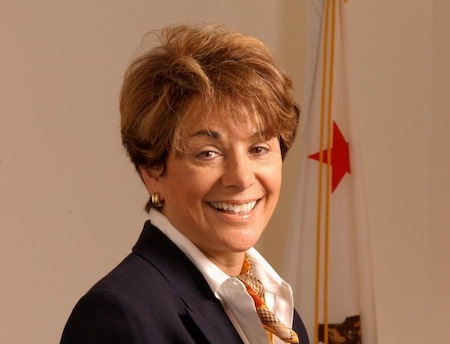California Democrats Differ Over Comprehensive Federal Privacy Legislation
Preemption concerns arise as House panel marks up bipartisan bill

The smarter way to stay on top of the multichannel video marketplace. Sign up below.
You are now subscribed
Your newsletter sign-up was successful
Some Democrats were agreeably disagreeing Wednesday (July 20) over a proposed bipartisan comprehensive federal data privacy regime.
The differences came to light during a House Energy & Commerce Committee markup of the American Data Privacy and Protection Act. The bill, which ultimately passed out of committee 53-2, would require companies to collect only the data necessary to provide their products or services, bill proponent Common Cause said, and would allow consumers to correct or delete their data. There are also prohibitions on discriminatory data practices, algorithms and ad delivery.
The bill has supporters on both sides of the aisle and in both houses of Congress, which is saying something in these politically divided times, particularly on an issue as complicated as data privacy protection.
But not everyone was singing kumbaya.
Also: ISPs, Edge Providers Oppose California Privacy Law
Rep. Anna Eshoo (D-Calif.), who was one of the two no votes, said that her home state already has the best privacy protections in the country, including inalienable rights to access personal information, delete information and stop its sale. California residents may also opt out of automated decision-making and limit the use of sensitive information.
Eshoo said she was concerned the bill would threaten those privacy rights and protections because it does not enshrine protections already in state law. She said she understood industry concerns about not creating a patchwork of regulations, but said there is a history of Congress leaving stronger protections in place when “practical and compatible,” as she suggested was the case with California’s privacy law.
The smarter way to stay on top of the multichannel video marketplace. Sign up below.
“State progress” should be preserved, she said, as the Health Insurance Portability and Accountability Act of 1996 (HIPAA) does in not overriding state health information protections, or as civil-rights law does in protecting state laws on the matter.
Eshoo said the legislation also has a loophole that would allow law enforcement to go after the private data of women seeking abortions in the post-Roe v. Wade world. She also pointed to the strength of California's privacy law enforcement, with an expert agency focused on preventing the misuse of information. She said the federal bill would compromise California's ability to enforce the law.
The law would be an improvement for much of the country, she argued, but she could not say the same for her constituents in California.
Eshoo’s fellow California Democrat, Rep. Scott Peters, saw it quite differently. He applauded the bill as a bipartisan, comprehensive bill that was of paramount importance.
Peters agreed with Eshoo that California had led the way with its privacy bill, saying the state law had served as inspiration for the federal bill.
He said he recognized the concerns of Eshoo and others and that, ideally, it would take even more of the California law. But he said there needed to be one standard so that businesses know what their rights and responsibilities are, which means the federal standard would necessarily have to preempt various state standards.
Peters also pointed out that without that preemption, the bill would not be bipartisan.
He said there were at least three important aspects of the bill that provided at least as much protection as current law.
Peters said the bill has landmark data-minimization protections that go beyond “failed notice and choice regimes,” as well as robust anti-discrimination protections.
For example, he said, while California law requires kids under 15 to get permission from their parents before they can be targeted with online advertising, the federal legislation flat out prohibits such targetting for anyone under 17. The federal bill also creates a Youth and Marketing Division at the FTC.
“There is no state law in California or elsewhere that protects kids as much as this bill does,” he said.
The committee voted down an Eshoo amendment that would have allowed state laws with stronger privacy protections to remain on the books, but, interestingly, Peters voted for the Eshoo amendment despite his recognition that state laws needed to be preempted in the federal bill. ▪️
Contributing editor John Eggerton has been an editor and/or writer on media regulation, legislation and policy for over four decades, including covering the FCC, FTC, Congress, the major media trade associations, and the federal courts. In addition to Multichannel News and Broadcasting + Cable, his work has appeared in Radio World, TV Technology, TV Fax, This Week in Consumer Electronics, Variety and the Encyclopedia Britannica.

